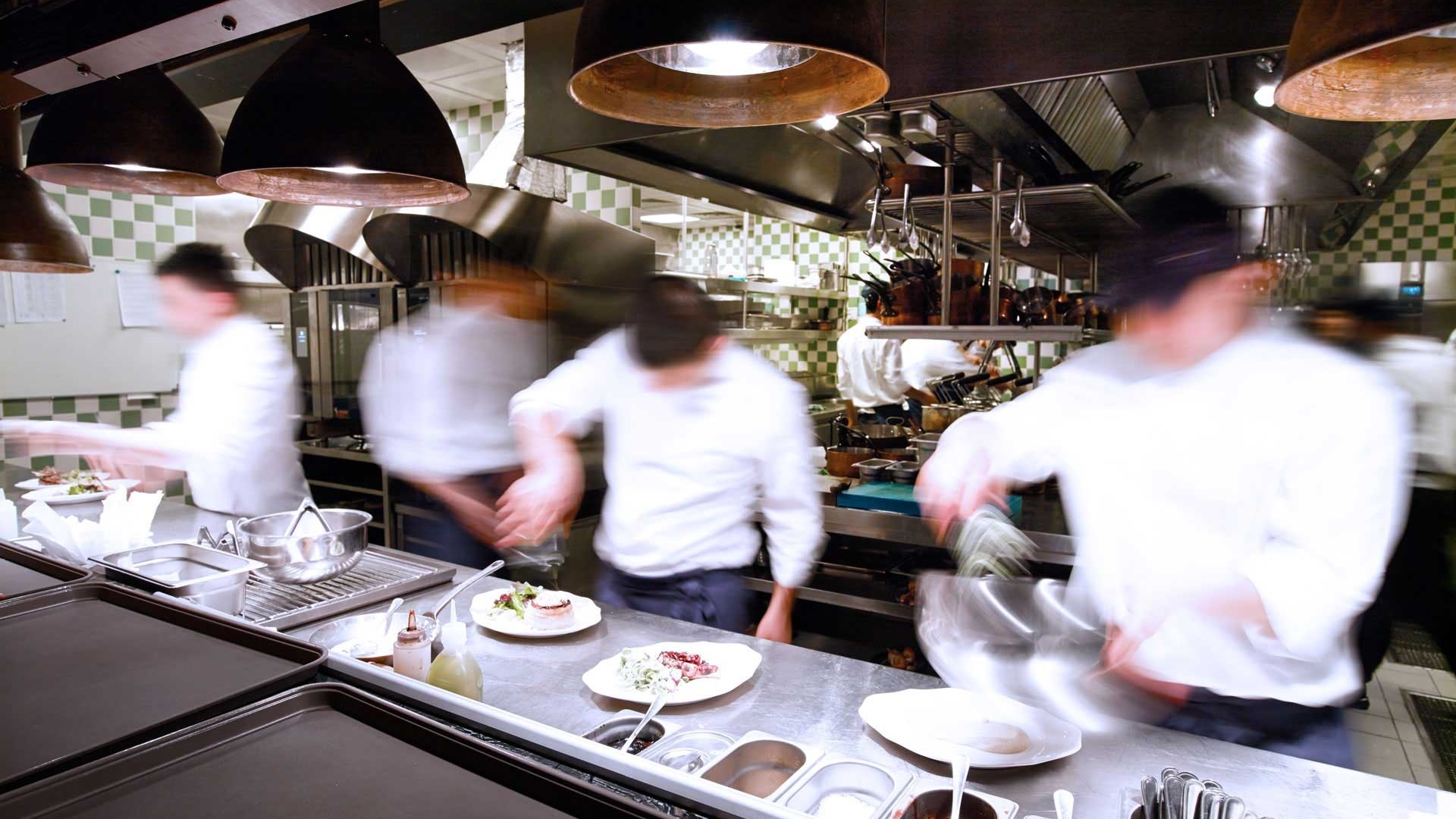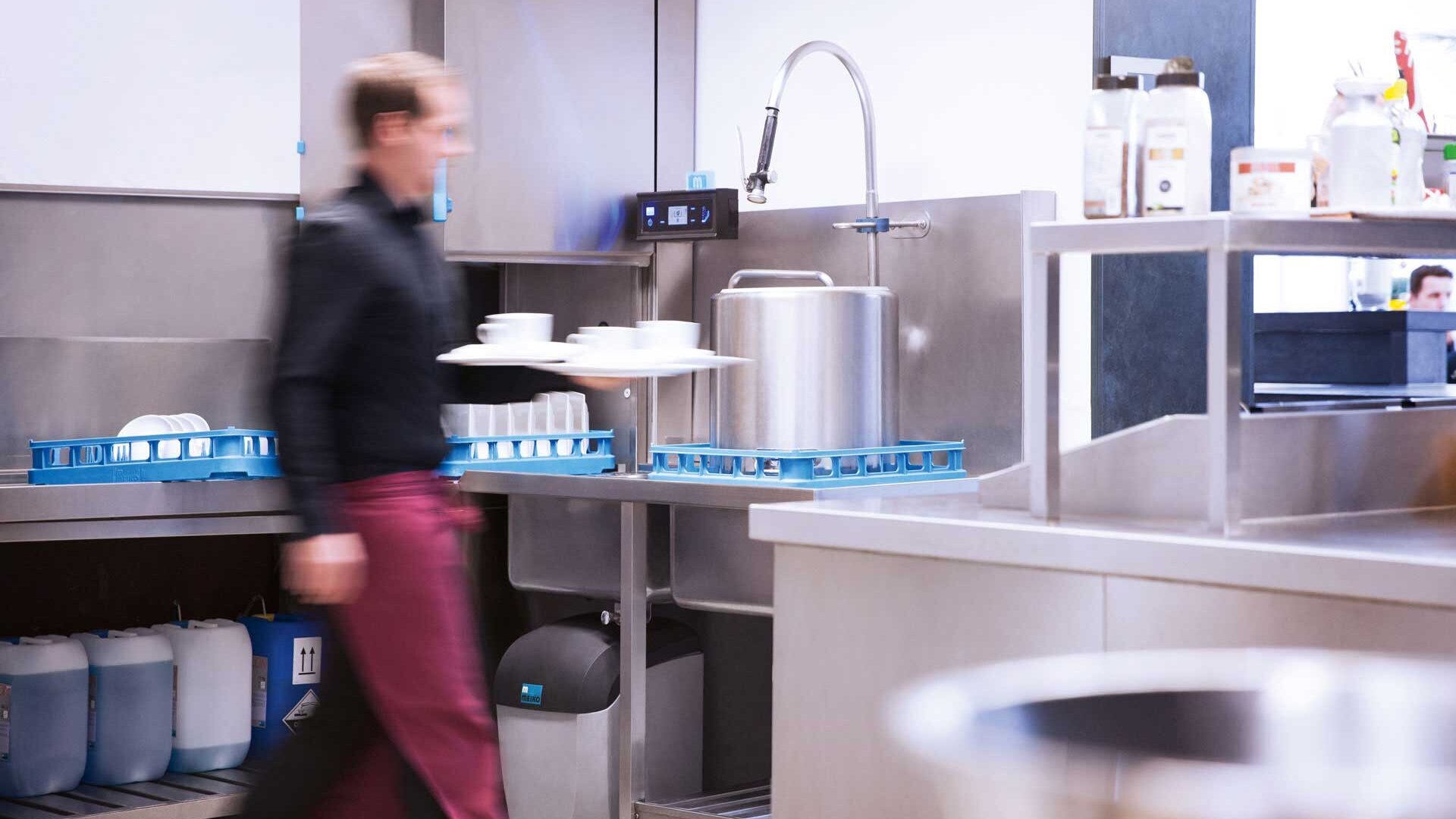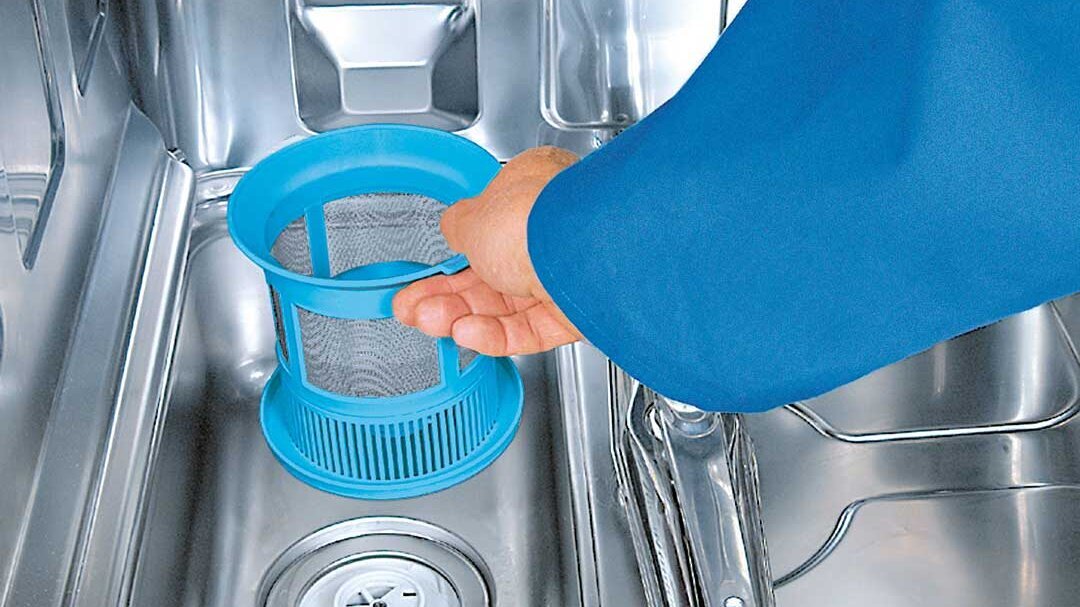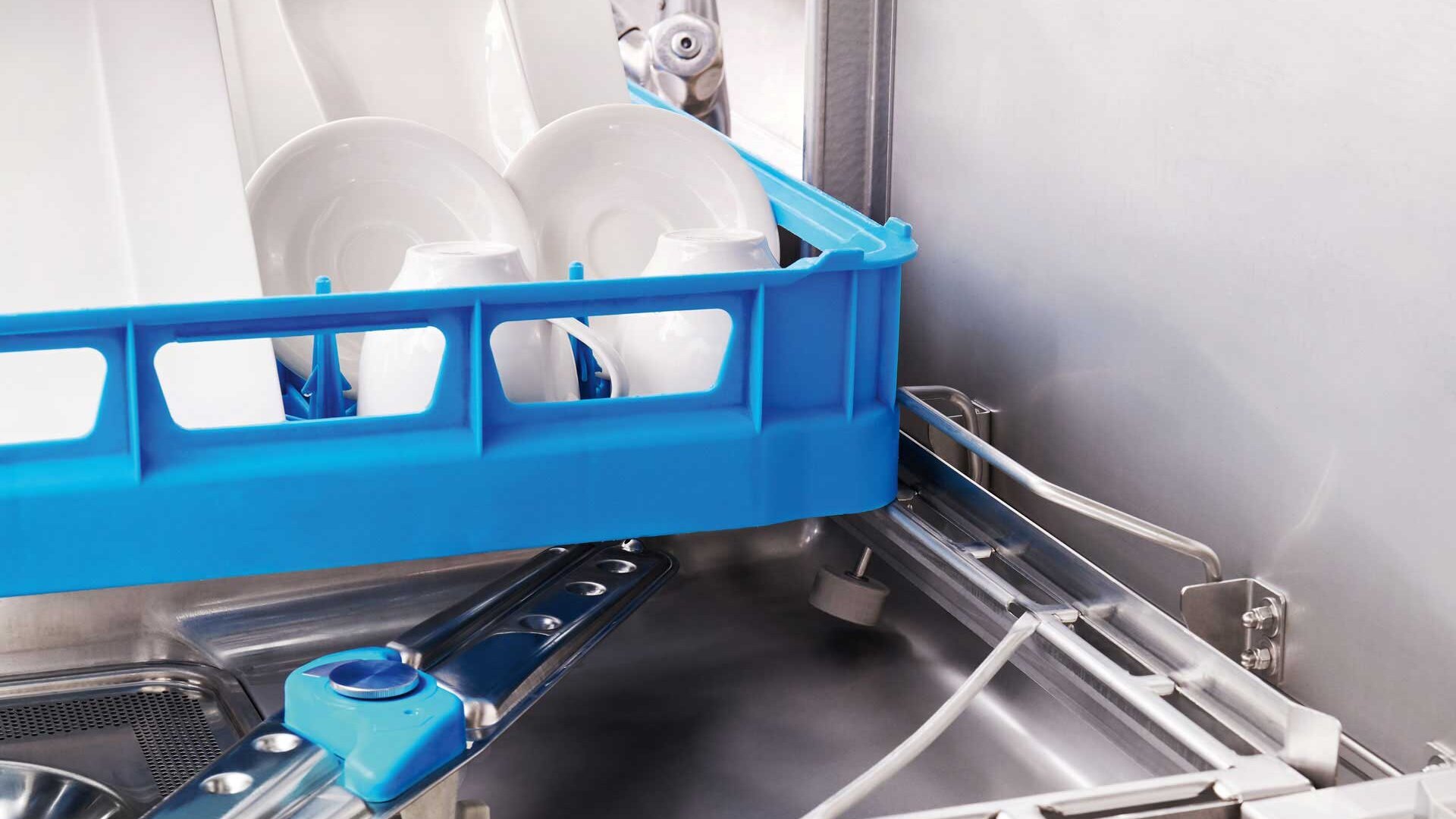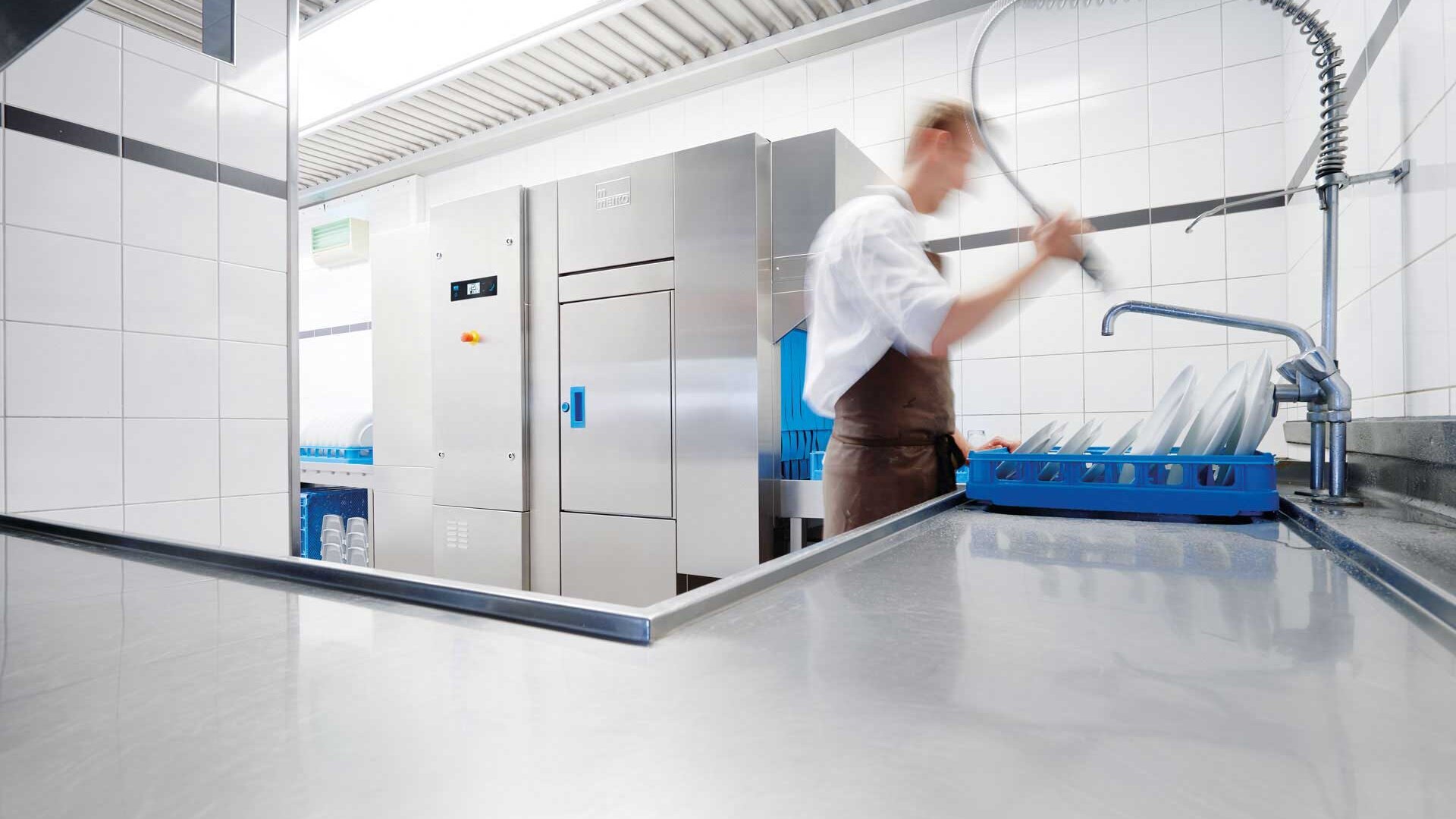It's Saturday night, 9 pm, restaurant rush hour. The chefs are placing beautiful steaks, chips and green beans on clean plates while waiters are bringing dirty dishes back to the kitchen – at least a batch a minute. While all that is going on, your automated colleague, the dishwasher is once again running at full speed this evening. It was a spur-of-the-moment purchase the owner slipped on an extra special offer last month. That bargain unexpectedly gives up at 9.30 pm – and causes panic in the kitchen.
Quick! Get to the phone! But no one can get hold of the manufacturer's customer service team. There is only one solution: call in a temp to wash the pots. But, of course, that person is not working for free. Just one example of unnecessary operating costs which prove that buying cheap costs more.
